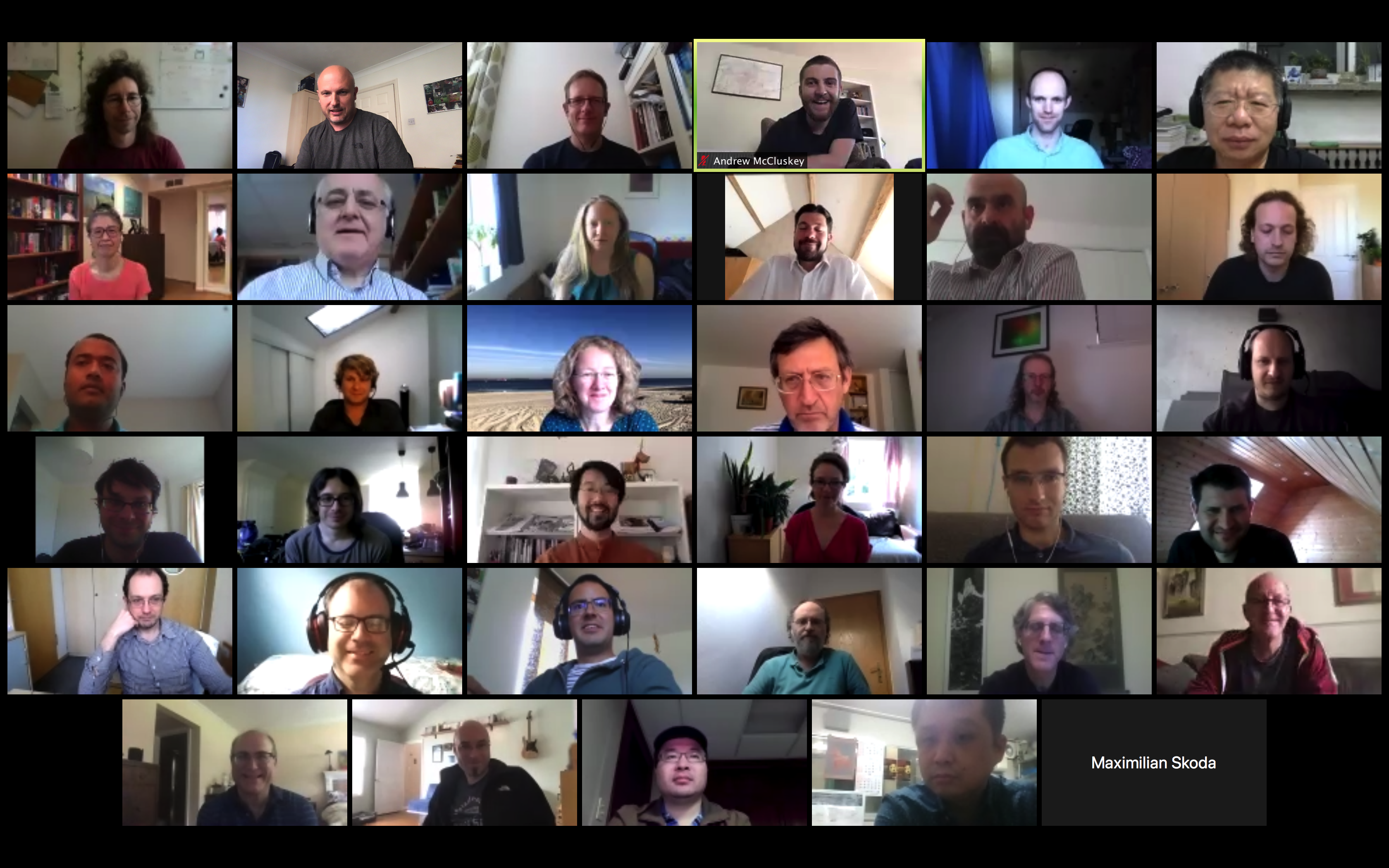Due to the cancellation of the SXNS16 conference, the planned ORSO satellite workshop was taken online. Over 40 of the worlds experts in X-ray and neutron reflectivity from various large-scale facilities took part in a successful meeting. Each of the working groups had a number of fruitful discussions and a list of actions has been created for each of the working groups
A report for this meeting has now been published in Neutron News and Synchrotron Radiation News

The meeting was held over 3 days: 26-28th May and consisted of:
- 26th May: An introductory webinar explaining how to participate in the event, with some brief presentations on the progress of ORSO to date. A recording of this webinar can be found here.
- 26th-28th May: small working groups sessions (typically an hour in length) to discuss specific topics.
- 28th May: Closing webinar. One individual nominated from each of the sessions presented a summary to the whole group.
Sessions
The outcomes of the working group sessions are summarized below with more detail on the working group pages:
- File Formats: Chaired by Jochen Stahn
The outcome of the file formats working group discussions can be summarized simply as “we want to stick to the principles whenever possible - and at the same time we are flexible and pragmatic and pay respect to traditions.” This attitude is exemplified by the agreement to generally use SI units, but to also allow Ångströms. The broad conclusion of the discussions is to develop two file formats; one strict and one pragmatic. The strict format will fulfil the principles of inter-operability and reusability, most likely using a NeXus-based hierarchical data format (HDF). Meanwhile the pragmatic format will be easily human-readable, compatible with legacy analysis software but also contain the essential information to trace back to its origin and some basics about the state of the data reduction. Original Agenda
- Data Analysis: Chaired by Brian Maranville
The data analysis working group discussed how the many existing analysis software packages should cooperate. This included the possible creation of generic or shared calculation engines and the definition of a vocabulary that allows for a consistent parameterization of models. The group plans to develop a set of reference calculations for reflectometry (with inputs and outputs) to ensure robustness across analysis software. Original Agenda
- Reproducibility: Chaired by Andrew McCluskey
The reproducibility working group sessions focussed on defining how we can work to improve reproducibility in reflectometry measurement, reduction, and analysis. In particular, focussing on how we can collaborate to produce reproducible methods for measurement, and help others create reproducible analyses. The discussions concluded with three principle actions going forward, the creation of informative documentation regarding the set-up and standardisation of instrumentation, the generation of guidelines for the expected steps required for accurate and reproducible data reduction and the writing of some “how-to” guides to encourage reproducible data analysis. Original Agenda
- Education and Outreach: Chaired by Tom Arnold
The education and outreach working group discussions were able to define the scope of the working group and discussed some detail on the design and content of the website and how to secure the long-term future of the ORSO collaboration. Going forward this working group will be responsible for the publicity for the organisation, including the website, the dissemination of standards and the organization of annual meetings. Original Agenda
Minutes for each of the sessions
- 26th May
16:30 File Formats 1a(i)/File Formats 1a(ii)
16:30 Reproducibility 1a
18:00 Data Analysis 1a(i)/Data Analysis 1a(ii)
18:00 Education and Outreach 1a
22:30 Data Analysis 2a
22:30 Reproducibility 2a
- 27th May
08:00 File Formats 1b
08:00 Data Analysis 1b
10:00 Reproducibility 1b(i)/Reproducibility 1b(ii)
10:00 Education and Outreach 1b
11:00 File Formats 2a
11:00 Reproducibility 3a
15:00 Education and Outreach 2a
15:00 File Formats 2b(i)/File Formats 2b(ii)
16:30 File Formats 3a(i)/File Formats 3a(ii)
16:30 Education and Outreach 3a
18:00 File Formats 3b
18:00 Data Analysis 2b(i)/Data Analysis 2b(ii)
22:30 Reproducibility 2b
22:30 Data Analysis 3a
- 28th May
08:00 Data Analysis 3b(i)/Data Analysis 3b(ii)
08:00 Education and Outreach 2b
10:00 Reproducibility 3b
10:00 Education and Outreach 3b
Organizers:
- Thomas Arnold (tom.arnold@ess.eu)
- Andrew McCluskey (andrew.mccluskey@diamond.ac.uk)
- Brian Maranville (brian.maranville@nist.gov)
- Jochen Stahn (jochen.stahn@psi.ch)
- Jos Cooper (Jos.Cooper@stfc.ac.uk)
- Rob Dalgliesh (robert.dalgliesh@stfc.ac.uk)
- Tim Snow (tim.snow@diamond.ac.uk)